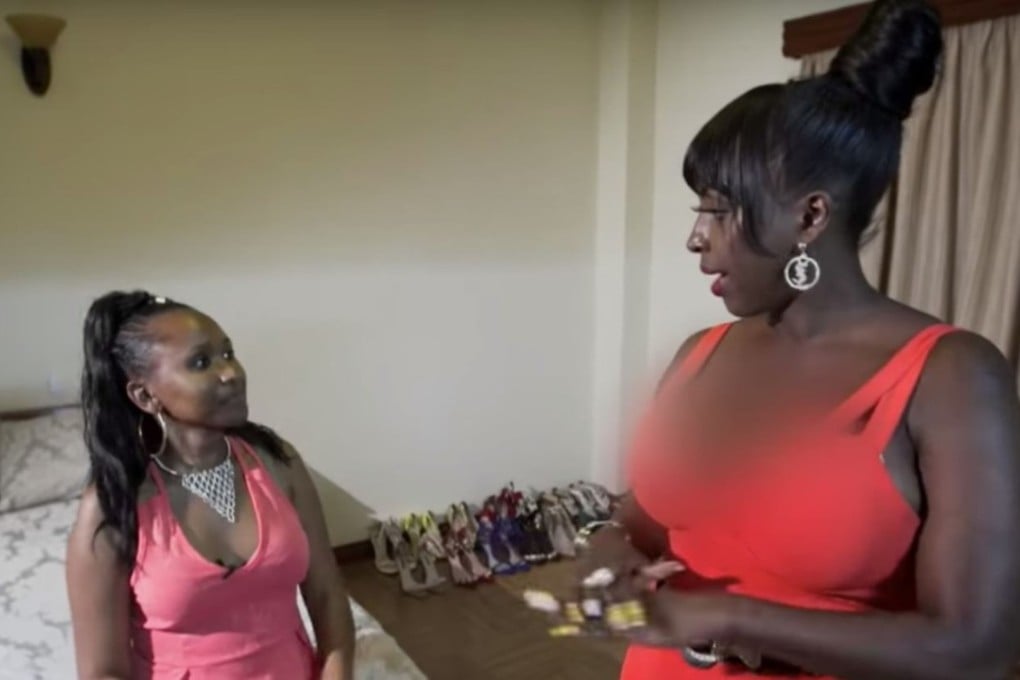BBC in censorship row after blurring cleavage of Kenya’s ‘Glamour Pam’
- BBC team travelled to Nairobi to interview Glamour Pam – who describes herself as a social media star
- Documentary was edited because of concerns over watershed rules in Africa, say bosses

BBC bosses have become embroiled in a bizarre internal row over the censoring of women’s bodies after blurring an interviewee’s cleavage to avoid causing offence to viewers.
The corporation’s world news team travelled to Nairobi to interview Glamour Pam – who describes herself as an interior designer, makeup artist and Kenyan social media star – for a documentary entitled Fake Me: Living for Likes as part of the corporation’s week of coverage of fake news around the world.
But the BBC Africa documentary, which looked at how people portray themselves differently on social media, was edited because of concerns about adverse reaction in some of the more conservative African countries where it was shown, prompting a debate at the BBC about whether the corporation should be censoring women’s bodies.
“The decision to deal with Pam’s cleavage was made at senior editorial level at BBC Africa,” said one internal email discussing the incident and justifying the decision.
One member of staff with knowledge of the internal debate likened the discussion to the panicked activities of BBC staff in the mockumentary W1A and said the issue had been dealt with by senior executives in the world news division.
The producer of the BBC Africa documentary told colleagues that a decision had been made during filming to “zoom in so we didn’t see her cleavage” but “in some shots, particularly the wide shots, we were unable to do this and so had to blur”.